
【Revolution】Peter Muchiri : Rockbern Coffee
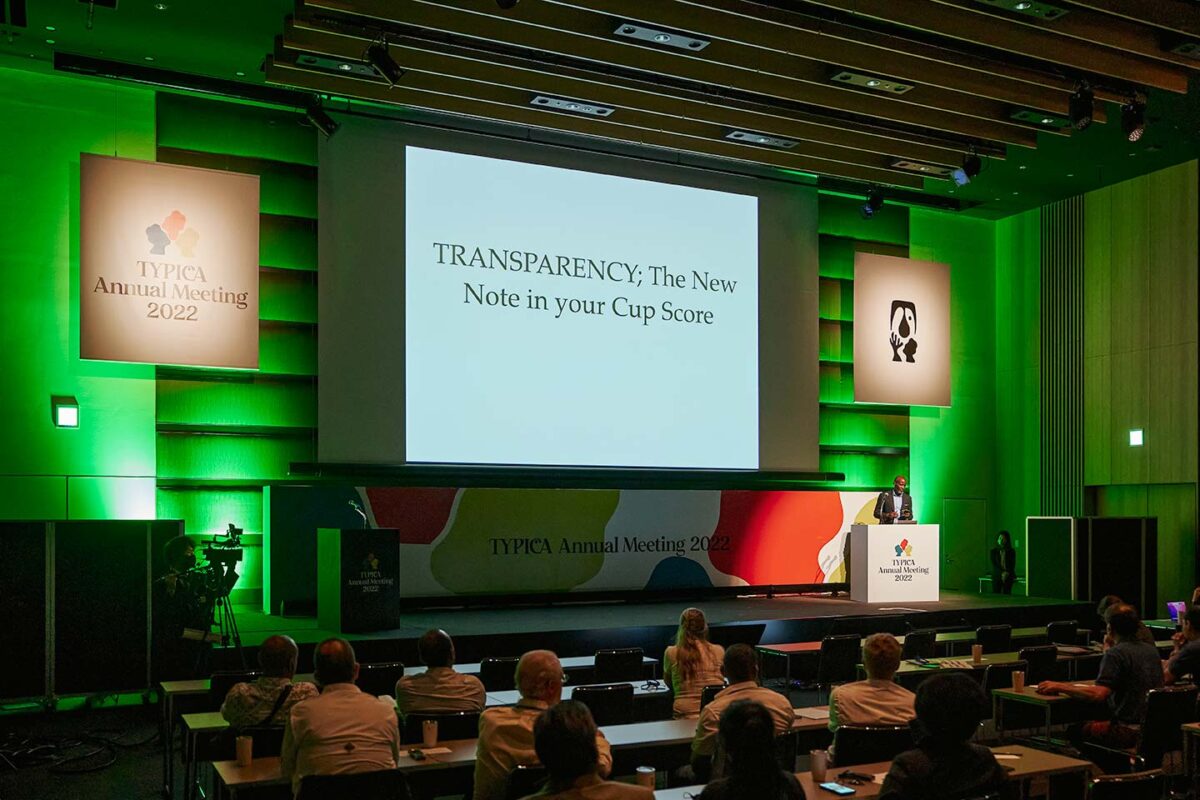
I need to, first and foremost, thank you, everyone who is here today for coming. Most of all I need to thank the TYPICA team for bringing us together. It’s been a wonderful forum. I think TYPICA has managed to articulate their focus and vision of what they expect and what they want. And to be honest, I feel we are aligned to that, because they say if you have a broken focus, you will get a broken outcome.
I need to challenge everyone here. Because I’ve always challenged people in many forums that we must face the future with some level of revolutionary honesty. We cannot just continue doing these things the same way and expect some different outcome.”
For me, I look at coffee in a very different way as a beverage first, but more importantly as I always look at coffee as a catalyst for liberty. If you look at the history of the world, coffee has had its fair role in shaping human civilization and our culture. Right from the enlightenment movement that was going on
in Europe in the 17th and 18th century, coffee had its place.
The French Revolution. Robespierre and Danton, if you read the history, they were meeting, strategizing in coffee salons. And to me, coffee is one of the subjects basically that broadens.
It’s like poetry. It’s got endless conversations. We can talk about sustainability, we can talk about many things. We can talk about fashion. Thank you very much for actually complimenting me about dressing, anyway, in a coffee forum for that matter.
When I look at coffee from that context of liberty, there is a big question that requires an answer. Yes, there’s liberty that comes along with coffee, but are the producers getting the liberty? Are they earning what they deserve?
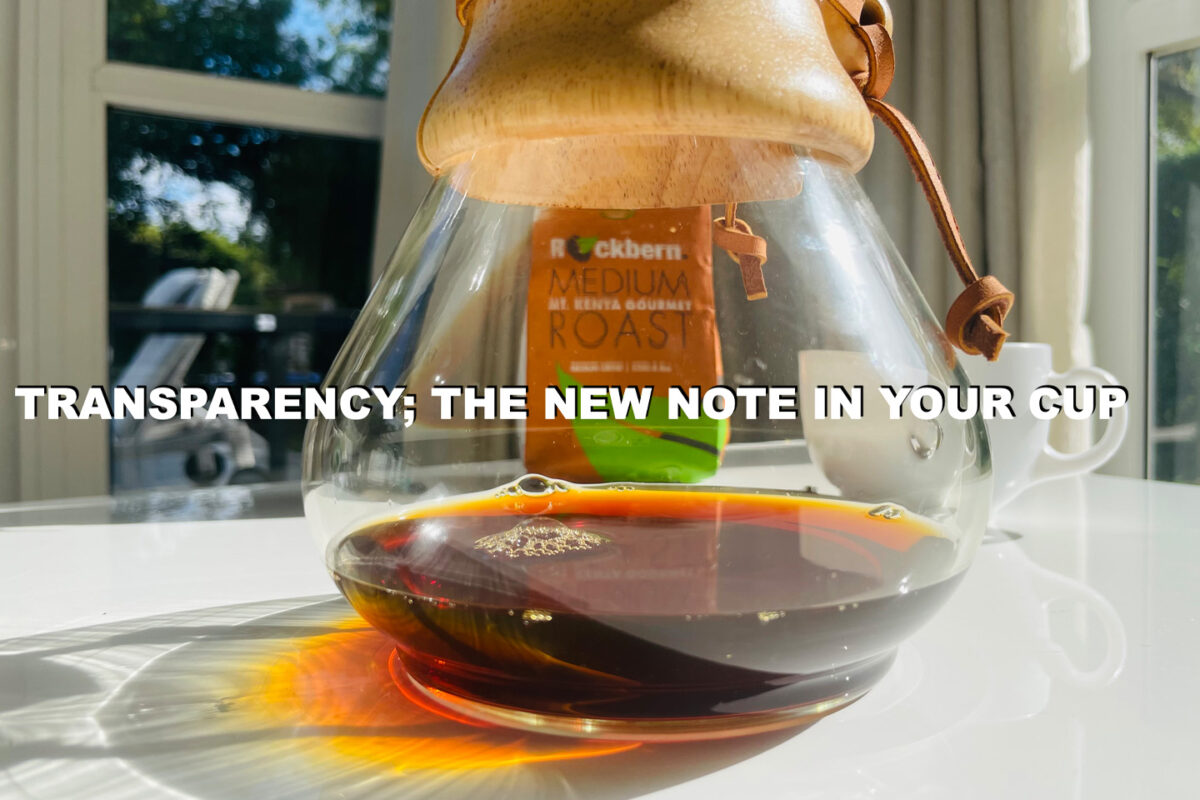
And for us, that’s why I brought in the subject matter today that I’d like we discuss. Because that’s a discussion actually.
And it’s titled “Transparency is the new note in your cup. I know we are looking for many… as roasters,
we are looking for acidity, we are looking for body, we are looking for mellow flavors.
But I dare to imagine transparency, I think it’d be the subconscious note. It is a subconscious note that we will be looking for in future.
You know, we want that transparency because again, I need to bring to attention that the world is moving, serious companies nowadays are looking forward not to their sales volume, but what they would call “customer lifetime value”.
What value are you adding to our consumers? And I think with more enlightened consumers, with the digital world, people want to know more about the story behind, or what’s going on behind the product they’re consuming, or they love so much. So enter Rockbern into this fray of transparency.
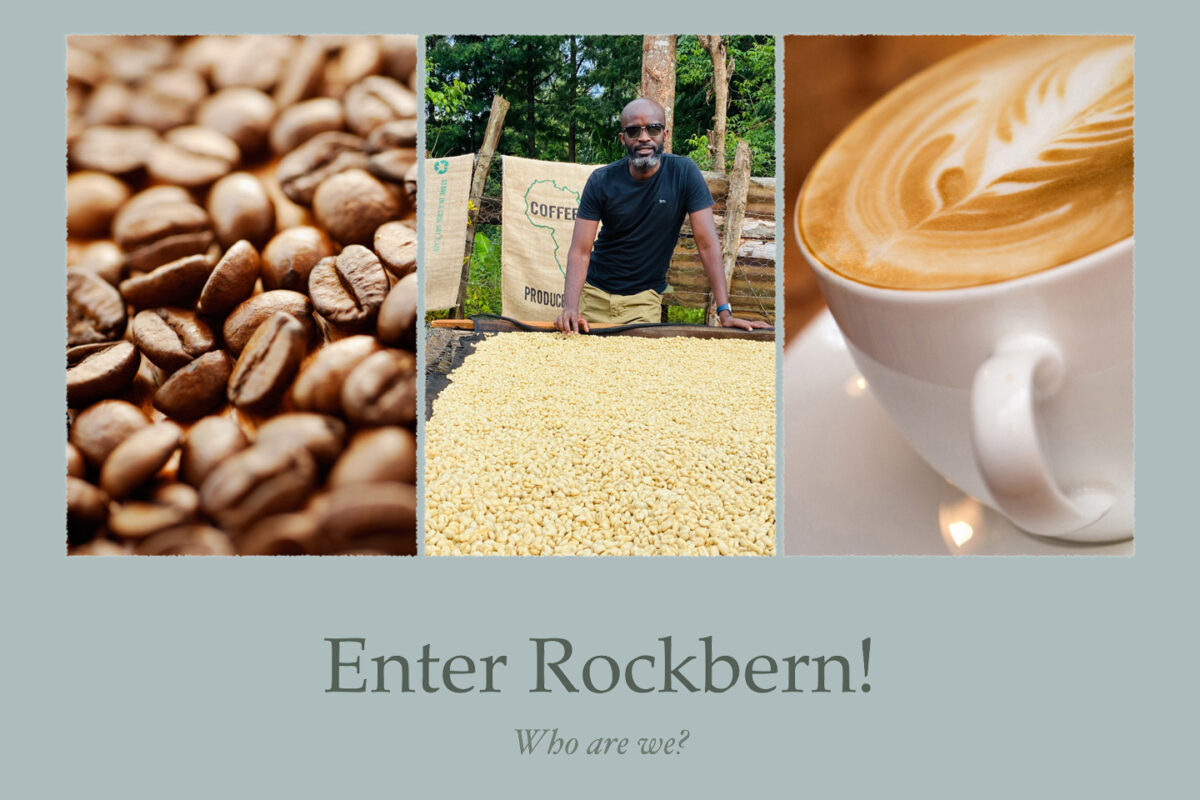
So what’s our role? And who are we? Alright.
Rockbern as I mentioned, I started it in 2012.
I was born in a coffee family myself. My grandfather was a staunch coffee farmer. Actually how I got myself into the coffee world was, that was in 1999. I was just about transitioning from O levels to go to university in Nairobi.
And I needed pocket money or I needed to earn some money to buy jeans. So I met my grandfather and it was just during the peak of the season.
And he told me, “come and work in my farm, and assist me on the processing and stuff. And maybe I can be paying you $1 per day.” Which is a lot of money.
Of course I learned later it was a polite way of, he wanted me to earn. If he wanted, he would just give me something for free.
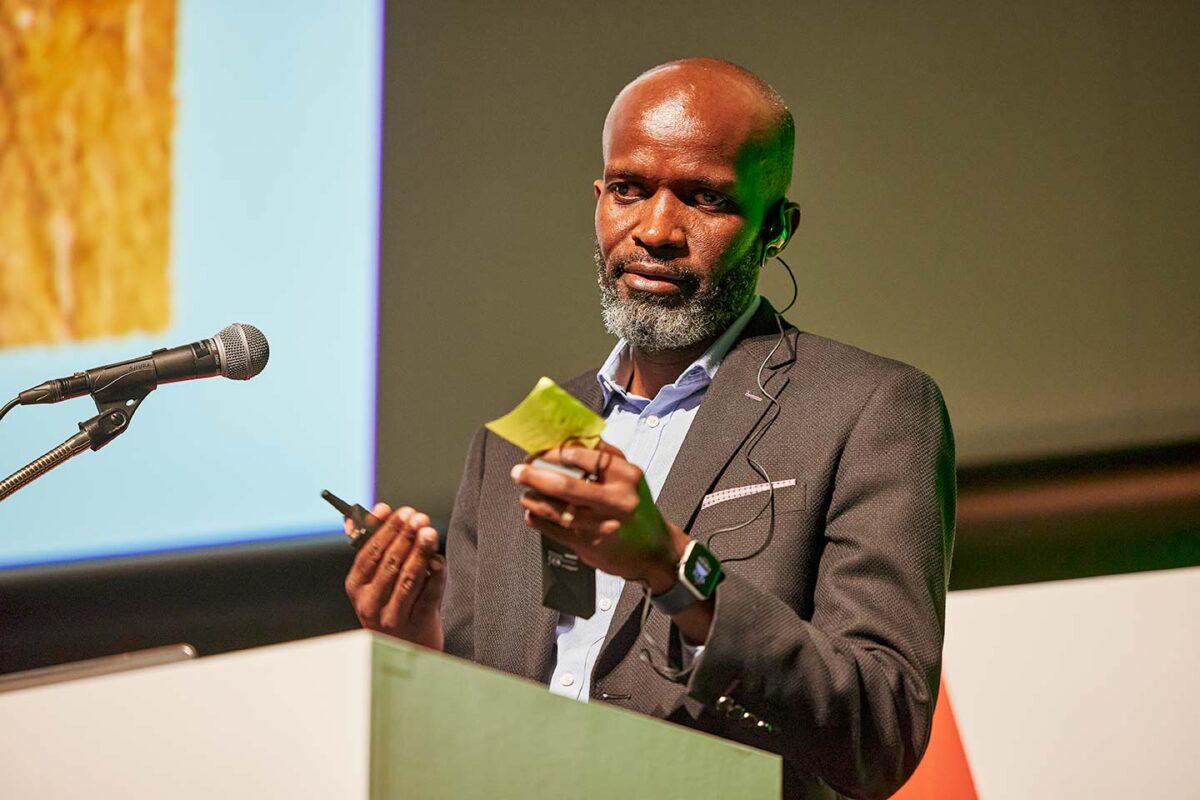
But again, when I was there, I realized there was quite a lot of knowledge that is required in processing good coffee.
And this old man could not be able to articulate it to exactly tell me, why do we require clean water?
Why do we require to ferment in a specific number of hours?
I started probing it from a scientific point of view. I had my internal discussion and asked myself whys.
And that’s how I promised him actually, God bless his soul.
I remember sitting under an avocado tree on my last day when I was going to Nairobi. Now leaving the village, I’m going to Nairobi to the university. And I promised him, grandpa one day I think I need to pursue this coffee and get to know it.
And I am in Japan. Coffee has brought me to Japan. Coffee has taken me across the world to be honest.
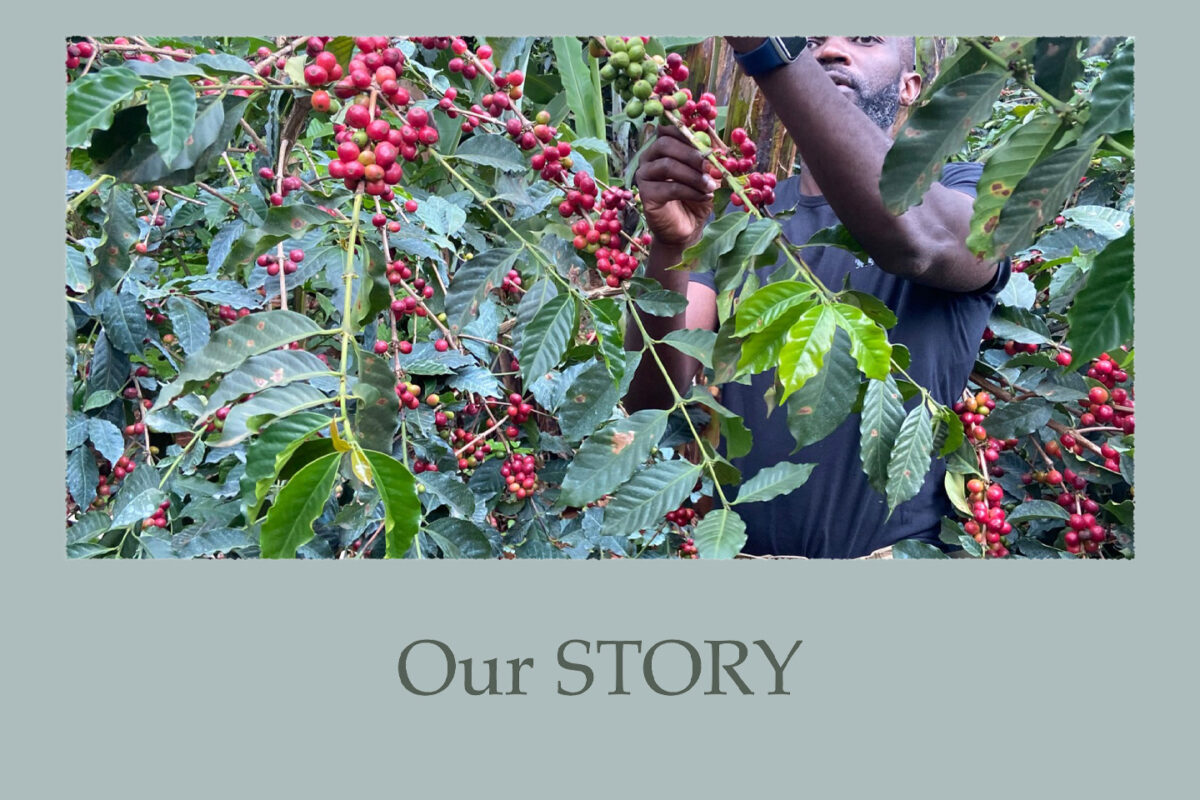
And when I cleared university, I’m an economist. I’m an accountant as well. I’ve been employed as a banker, but again, deep inside my heart I knew where I wanted to be.
So come 2011 I married my wife, Bernice. And I pictured this clear vision of what I wanted. But I told her “Look, actually I want to quit employment. And I want to set up a company. We must make a change. We must face the future as I’ve mentioned with a revolutionary honesty.” And that’s how we formed Rockbern with my wife.
If you look at the meaning of my name Peter is defined as a rock. That’s from Greek mythology.
My wife is called Bernice. So basically it’s the combination of Bernice and Peter.
My character is also very outgoing and very talkative. Of course many of you might have noted that.
But when I say about my wife is a very subtle person. She’s very quiet. So in our branding, actually you look we’ve got a yin yang philosophy that has taken in that characters. Because whereby we balance the two forces to counterbalance each other.

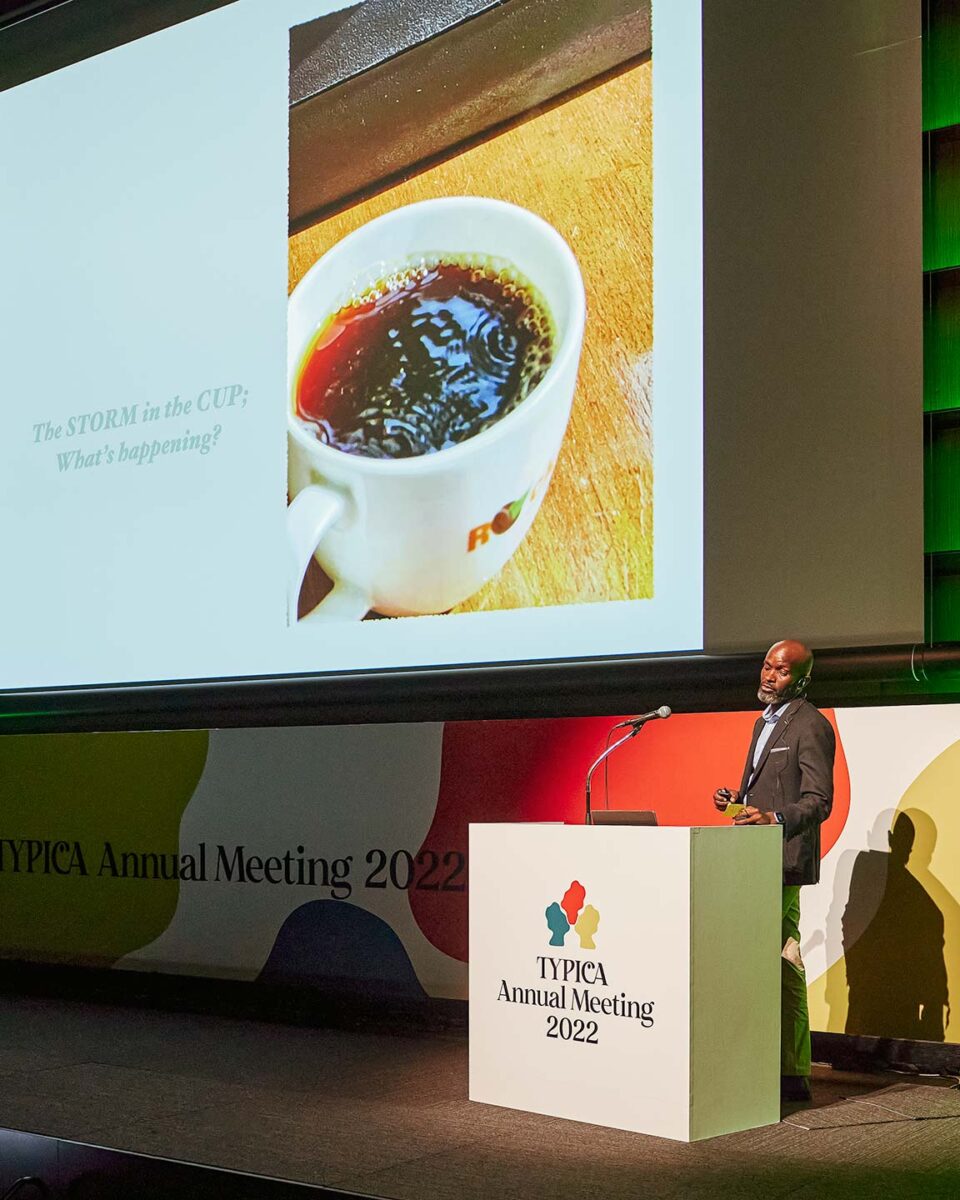
Now I want us to discuss the story about the storm in the cup. What’s happening in Kenya.
I’ll talk about Kenya specifically, and what we have done about it and the impact that has had.
Currently, Kenya is…this is sad news, hard to imagine, is that if we continue doing things as they are,
we don’t do something about it, that good cup of coffee I really enjoy, guys, will not be available. It will not be available because what has been happening in Kenya is the fact that the old generation are still the guys who are dominating the farming. And the reason the old generation are dominating the farming is the fact that there’s no transparency.
Young people are no longer attracted to coffee farming because it’s not a business. Why?
You deliver your coffee or the farmers deliver the coffee and it takes them quite a long, long time to get paid. I think the turnout is almost six months. And during that time if you ask them actually
how much money you are intending to earn, or you are expecting to earn, the majority will tell you, “I don’t know”.
If you ask any young person, “Do you want to go to a business?” and they’ll ask you “How much money will I’ll make in that business?” The answer is “I don’t know”. “When will I be paid?” I don’t know.
Of course they’ll tell you “good luck, I’m not going to be in such a business model.”
What we are doing in this particular case is we are working with people like TYPICA, and many other players across the world. We are doing the top-down, you know we have upended the old model. So basically we are working with the farmers by giving them a certain guarantee of a price, the bare inimum.
This expected price we are looking forward for you to earn.
And along the value chain we are declaring that, the roasters, how much value is going to the farmer,
“what is retained by Rockbern as an exporter. And ultimately how much is going to the farmer which is normally the big chunk.
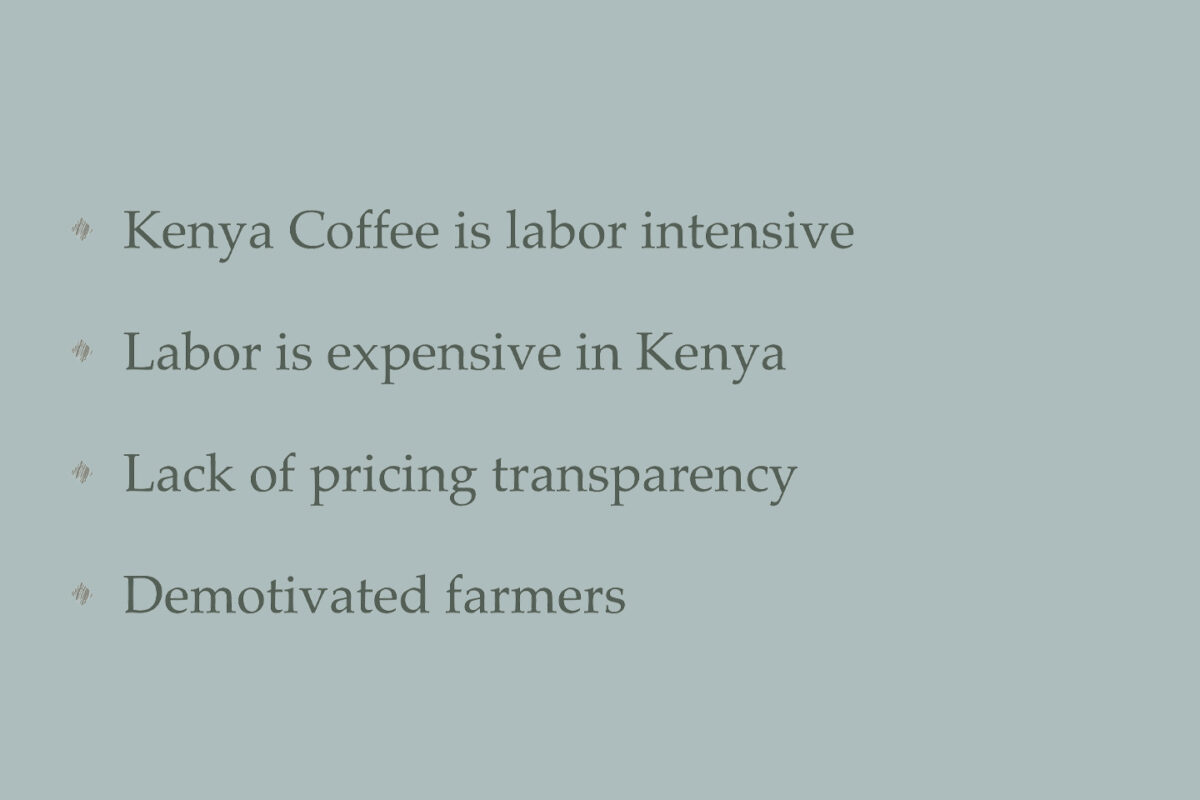
What has happened? That has had a huge impact because, again as I mentioned, Kenya coffee is very expensive. I mean that good coffee you are enjoying is expensive by context of…labor is expensive in Kenya.
Partially one of the reasons I’ve said that is because there has been a massive rural to urban migration.
The young people are willing not to work in the farms. They are going into IT or another sector, service industry. So that makes the labor very, very expensive.
And lack of pricing transparency that I mentioned about, and of course, now with poor prices, of course, we expect nothing short of demotivated farmers. So with fewer people in the industry, of course, you expect nothing short of slow adoption of modern technology. And of course with the slow adoption of modern technology, you don’t expect people to adopt modern agronomy skills.
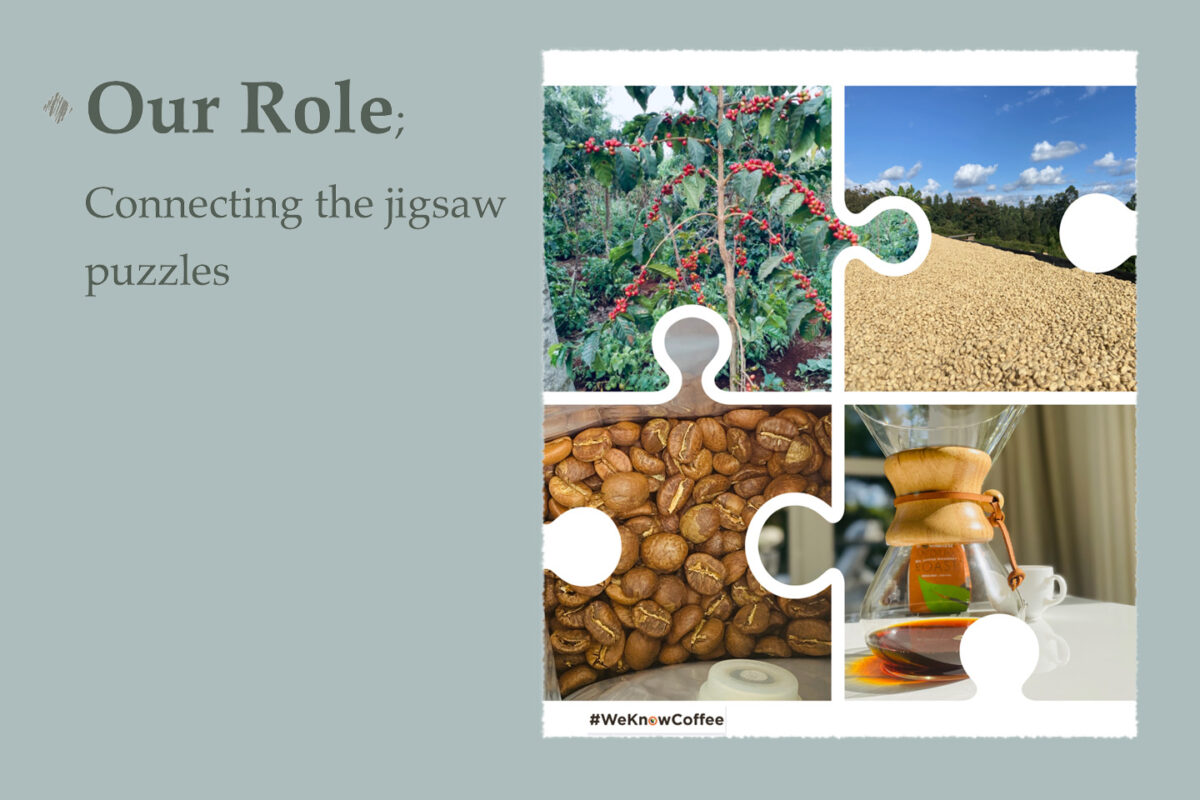
With the transparency, the issue of just changing that small thing of like just upending and ensuring that there is some level of guarantee of prices. Like for example, the farmers, most of the farming groups right now, they know the bare minimum they’re going to be getting next year if they work with us. That has seen quite a huge, huge, huge difference whereby we have seen young people who are now going back into the coffee farming.
And with young people going back to the coffee farming, of course they expect nothing but the adoption of modern technology, modern agronomy skills, and of course, taking leadership roles in that and becoming more and more vibrant community.
Our role, as I mentioned, is connecting and ensuring that there’s that connection between the farmers and the producers. And, of course, once you do that, good transparency is good prices that are realized.
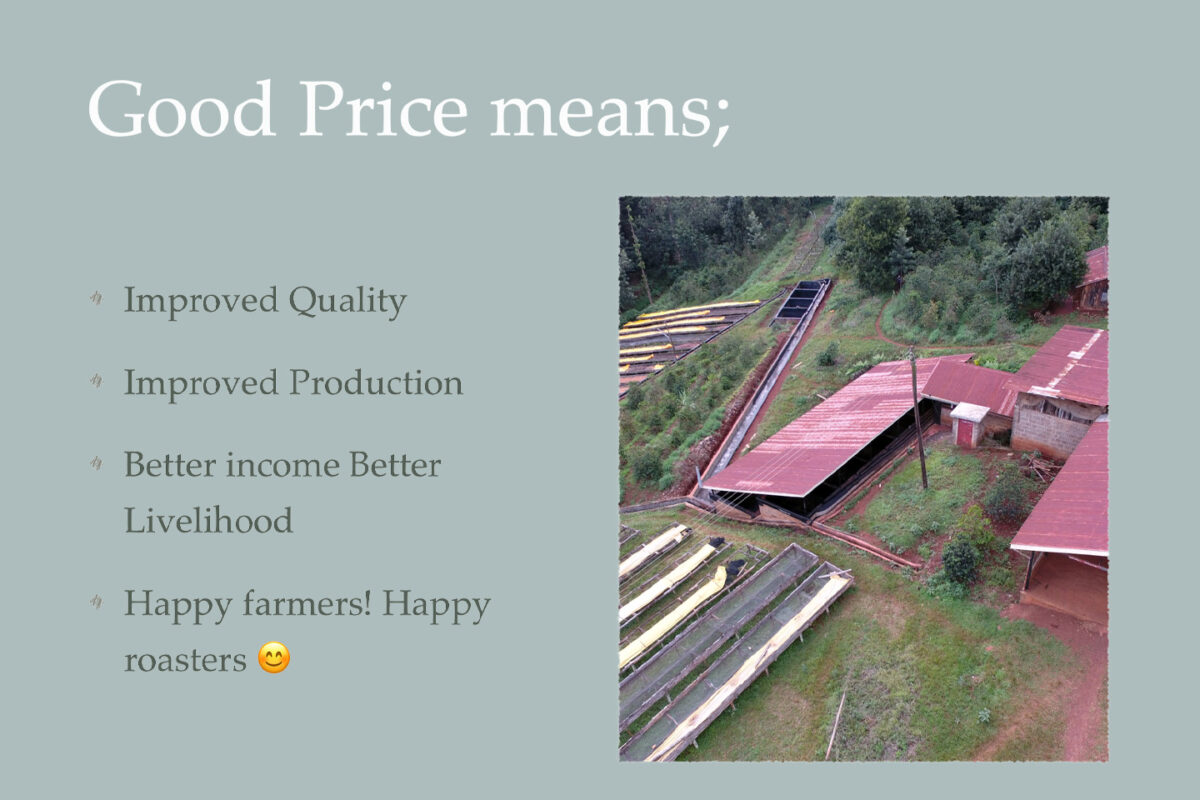
And, of course young people are drawn into it and the adoption of modern technology. Good price also means that there’s improved quality, improved production. And there is a better income for better livelihood of course. And of course, happy farmers means happy roasters and I believe happy roasters also means happy consumers in that context.
Thank you.
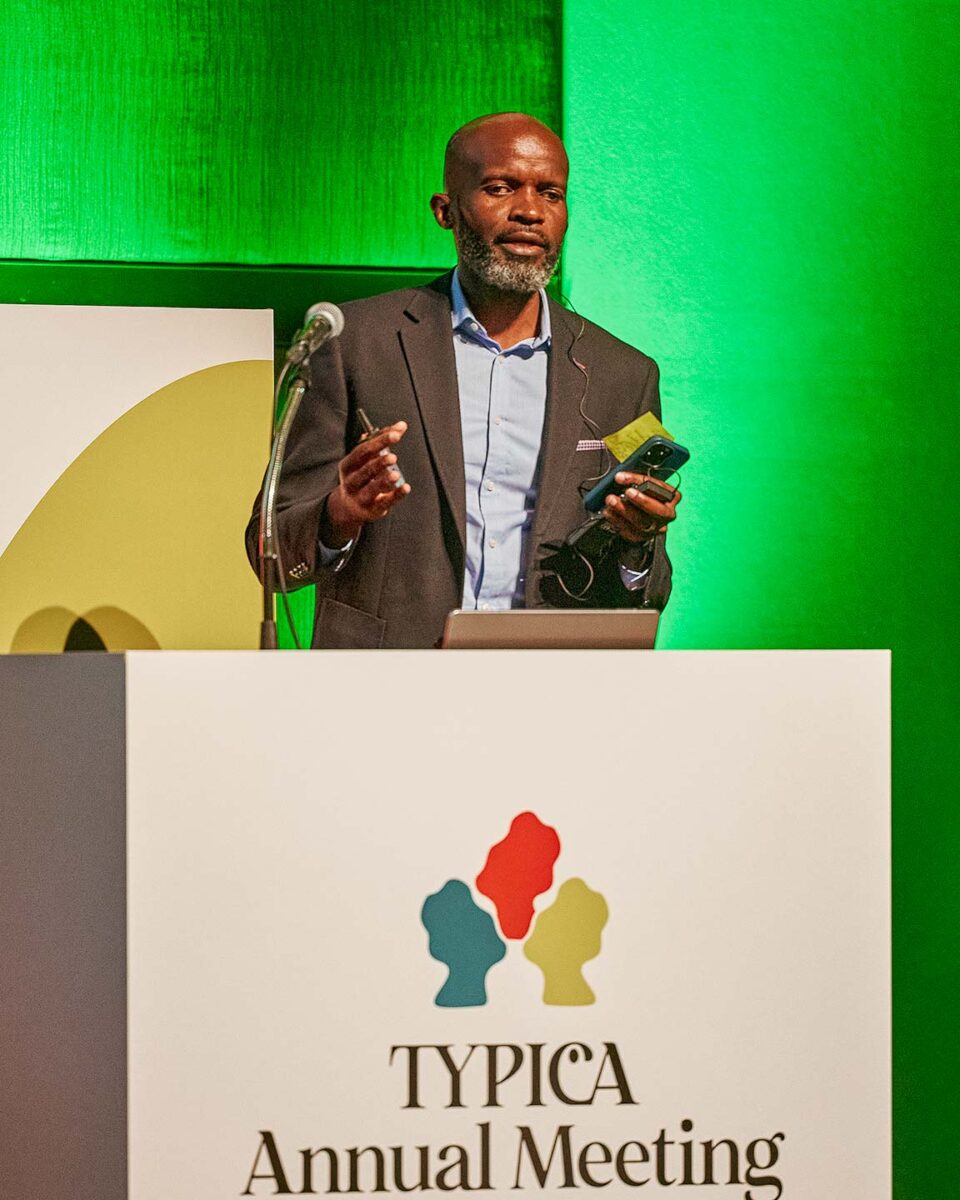
【Q&A】
Q: I know we had a conversation about decolonization and the history of coffee. So how do you see best decolonizing past trauma in different continents, and bringing what you’re speaking about into the market or the awareness of the younger generation?
A:First, my belief is that the so-called colonization begins with our mindset.
And someone mentioned that thing about, I can’t remember who it was. But he said, he who controls the language, basically will control the vibe, or basically if you control the language you will control what you listen and control everything, the message for that matter.
I think, for me, some of those things can be addressed and they’re being addressed in these kinds of forums like what TYPICA has done, because it’s only by having these conversations and everyone telling their stories and people getting to know and judging for themselves. I think that is the starting point.
And, again, as we were discussing, as you mentioned, and as I mentioned, again, for me, coffee connotes liberty. And liberty means everyone needs to do what they want to do in their lives. And so it’s something we need to enjoy and freedom starts in our mind, for that matter, and enjoyment will start in our minds for that purpose.
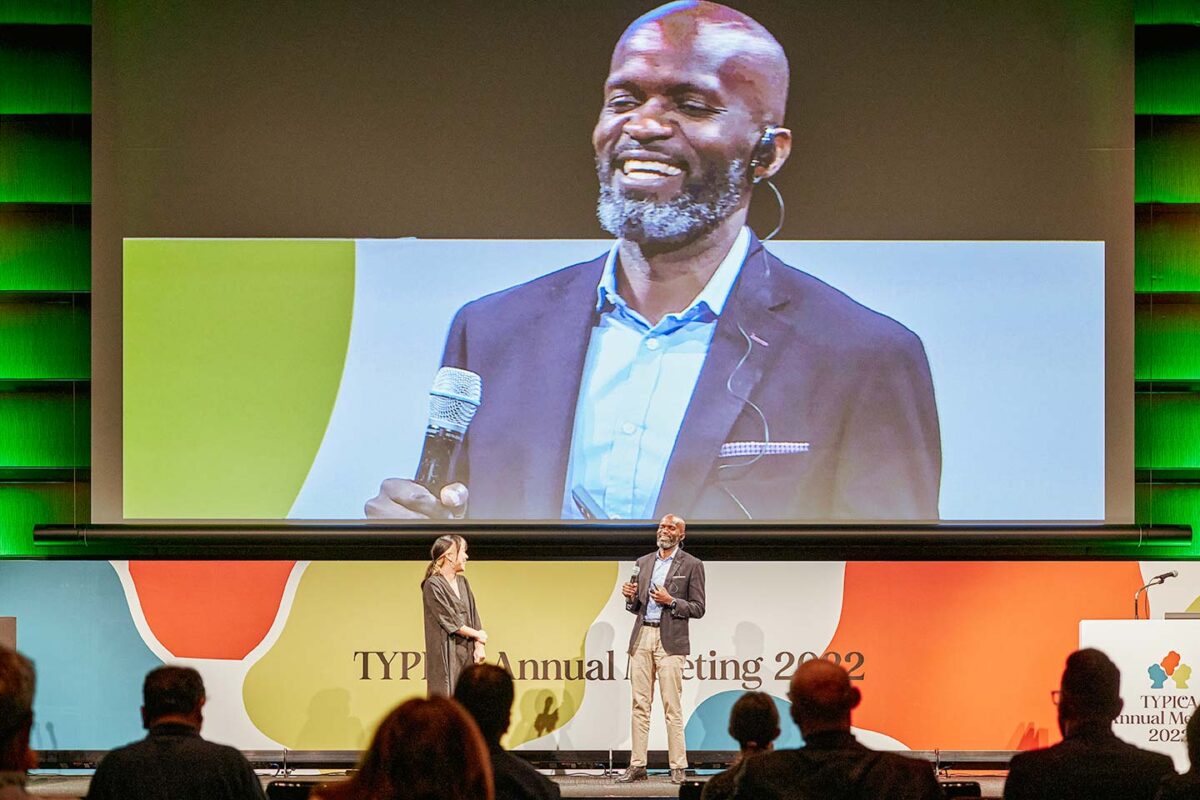
Q: Hey, Peter, so last time we offered your coffee in Europe, and it was all beautiful coffees, but one was especially standing out. It’s the sun dried coffee. And there were not that many bags. So we had to disappoint a lot of roasters. We luckily have some roasters here actually who managed to get this coffee. So my question is, are you planning to do more of those type of coffees, the sun dried?
A:Yes. As I mentioned, the philosophy we are adopting is the customer lifetime value. By listening to you right now, I think that’s what’s important. I need to convey that to the farmers and tell them
this is what your consumers want for it. And yes, we’re going to do that because the ultimate goal is to add value to the consumer. because the ultimate goal is to add value to the consumer. Yeah.








